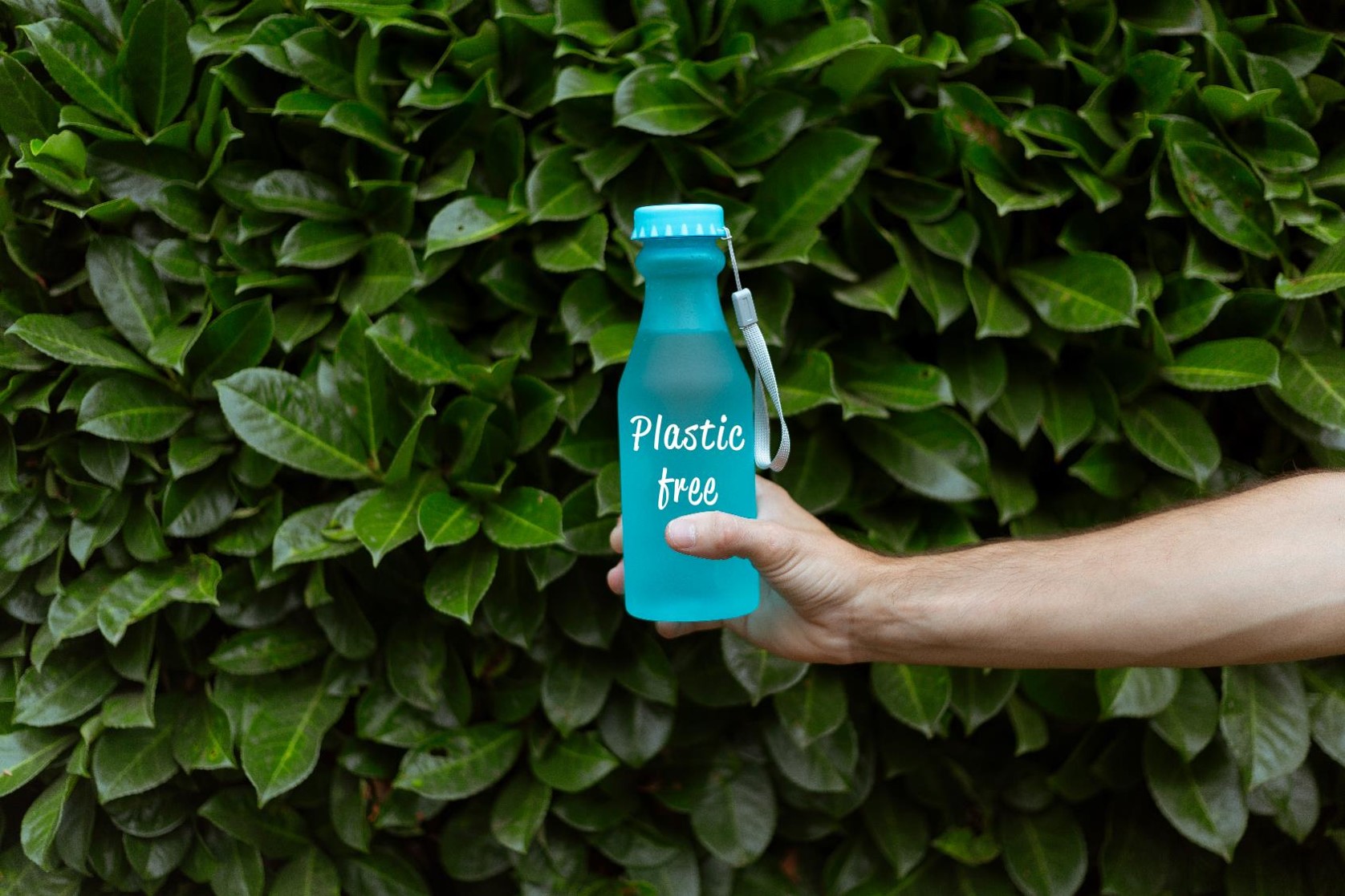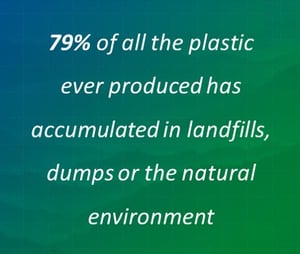
This month, we celebrate Plastic Free July - a global movement that helps millions of people be part of the solution to plastic pollution. This movement has inspired over 250 million participants in 177 countries, promoting the idea that making small changes will collectively make a massive difference to communities worldwide.
At ASL we are committed to making changes, small & large, to reduce our own use of plastic, and to encouraging our customers to move to more sustainable alternatives. This blog is the first of a series in which we consider some sobering plastic facts, look at alternatives & show how we're working with customers & suppliers to help reduce plastic waste.
Plastic Pollution
Plastic is extremely durable, highly flexible and inexpensive to produce. Unfortunately, it is terribly detrimental to the environment. In fact, we use so much plastic that we send a shocking 12 million metric tons of plastic in the ocean each year. Once there, the plastic pollution breaks down into microplastics that find their way into fish stomachs and marine plants, accumulating in the marine food chain.
Current estimates show that there are approximately 51 trillion microscopic pieces of plastic, weighing 269,000 tons in the sea. That is about the same as 1,345 adult blue whales or 500 times the number of stars in our galaxy. Plastic pollution affects us all since 1 in 3 fish caught for human consumption now contain plastic, while 70% of Earth’s oxygen is produced by marine plants, now contaminated by plastic.
 Plastic pollution not only affects the oceans but also the land. Only 9% of all plastic waste ever produced has been recycled. About 12% has been incinerated, while the rest — 79% — has accumulated in landfills, dumps or the natural environment. Only a tiny fraction of the plastic used is actually being recycled or incinerated in waste-to-energy facilities.
Plastic pollution not only affects the oceans but also the land. Only 9% of all plastic waste ever produced has been recycled. About 12% has been incinerated, while the rest — 79% — has accumulated in landfills, dumps or the natural environment. Only a tiny fraction of the plastic used is actually being recycled or incinerated in waste-to-energy facilities.
Much of it ends up in landfills, where it may take up to 1,000 years to decompose, leaching potentially toxic substances into the soil and water. Moreover, new studies have shown that microplastics are now present in the air too.
Plastic Facts
Here are some lesser-known facts about plastic you really need to know.
1. Since the 1950s, around 8.3 billion tons of plastic have been produced worldwide.
According to a report from the Guardian, an estimated 8.3 billion tons of plastic have been produced since the 1950s — that’s equivalent to the weight of more than 800,000 Eiffel Towers. And only 9% of it has been recycled.
2. In some parts of the world, using plastic is already illegal.
Kenya introduced one of the world’s toughest laws against plastic bags in 2017. Now, Kenyans who are caught producing, selling, or even using plastic bags will risk imprisonment of up to four years or fines of $40,000. Other countries that have banned, partially banned, or taxed single-use plastic bags include China, France, Rwanda, and Italy.
3. 73% of beach litter worldwide is plastic.
According to National Geographic, 73% of all beach litter is plastic. The litter includes filters from cigarette butts, bottles, bottle caps, food wrappers, grocery bags, and polystyrene containers.
4. A million plastic bottles are bought around the world every minute.
A report by the Guardian found that 1 million plastic bottles are bought around the world every minute, and this number is set to increase by another 20% by 2021 if we don’t act. The same report said more than 480 billion plastic drinking bottles were purchased in 2016 across the world — up from 300 billion a decade ago. Additionally, less than half of the bottles purchased in 2016 were recycled — with just 7% of those collected turned into new bottles, and the rest ending up in landfill sites or the ocean.
5. Worldwide, about 2 million plastic bags are used every minute.
This might seem like an unbelievable number, but according to Ecowatch, between 500 billion and 1 trillion plastic bags are used worldwide annually. New Yorkers alone use 23 billion plastic bags every year, according to the New York City Department of Environmental Bans on plastic bags have already proved to be extremely effective in the countries that have them. In the UK, for example, the introduction of a 5p plastic bag charge introduced in 2015 has brought about an 83% reduction in plastic bag use.
Reducing Our Impact
One of ASL Global sustainability commitments is to Reduce Our Impact. This commitment includes a wide range of activities designed to not only reduce our impact as a company, but also to help our clients and suppliers reduce their various impacts too.
For example, we worked recently with a global soft drinks brand to develop an aluminium cup for a major activation in a leading restaurant chain across Australia. The collectable cups were lightweight, durable, reusable, 100% recyclable and of course, not made from plastic. We even replaced the usual polybag wrappers with a 100% compostable alternative. And with 3.2 million cups produced, that made a big impact on the overall sustainability of the campaign.
Do you want to generate ideas to help create more environmentally friendly marketing campaigns? ASL's experts are on hand to provide guidance and support. Why not book a free Sustainability Workshop for your marketing team - we will build a bespoke, interactive workshop session tailored specifically to your brand, delivered in person or online, as required.
Contact us to book your Sustainability Workshop today
ASL Global is committed to conducting our business in a responsible & sustainable way. Acting with passion and integrity, our people work with customers, suppliers and other stakeholders to make a positive contribution to social responsibility and environmental sustainability in communities around the world.

Discover more about our ONE WORLD initiative







